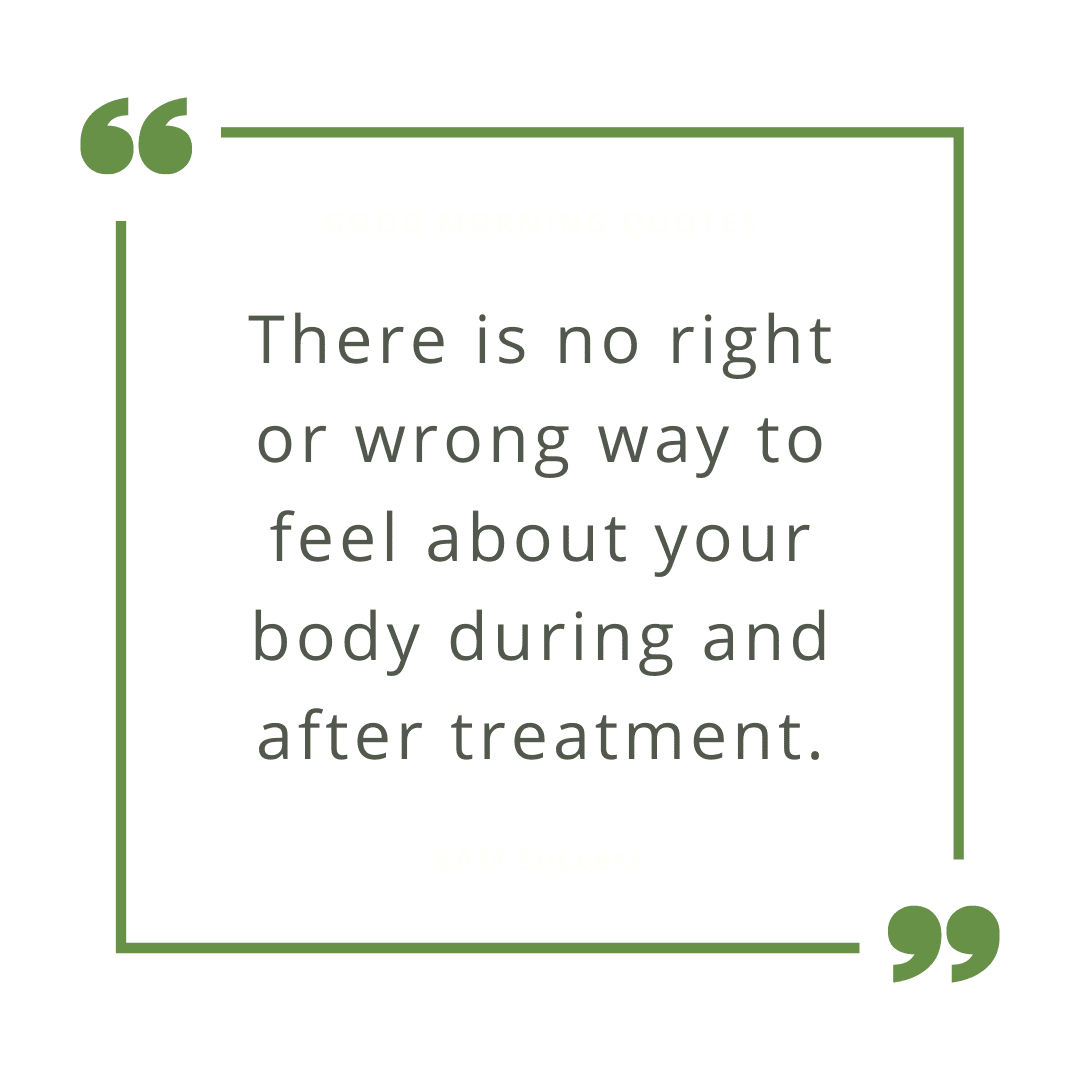Body Positivity and Cancer

What is body image? It is the psychological picture of oneself.
Our body image is something that often fluctuates throughout our life based our own personal judgement of ourselves. While this can be positive or negative, when our bodies are impacted by cancer, it takes a toll both physically and emotionally and can affect our body image.
The physical changes that we may notice during treatment can depend on the type of cancer and required treatment. Treatment may require extensive surgeries resulting in permanent changes such as large scars, ostomies, and catheters. Some changes may be temporary like hair loss, weight gain or weight loss. And we have changes others cannot see like infertility, and pain.
Sarcoma patients are very vulnerable to larger, noticeable changes to their body due to the nature of the cancer. Some changes may be very noticeable such as the loss of a limb, large scarring and disfigurement. It can be extremely difficult to face the changes that have happened to our body regardless of the severity. We must think of not only the physical changes but the emotional strain that contributes to the view of our body and our functionality in life.
I have heard from some patients very negative opinions of their bodies after treatment. Comments such as, “I hate myself now,” “This is not me,” “When I look in the mirror, I see someone else,” and “I’m embarrassed of the way I look.” While other patients may feel relieved, saying, “I’m glad the beast is gone,” and “It’s over and I can move forward.” There is no right or wrong way to feel about your body during and after treatment. While the physical changes represent a reminder of the cancer, they can also serve as a reminder of the strength and the courage that it took to get to that point.
The emotional changes that take place during cancer can be wide ranging, from anger and fear to anxiety and depression. These changes impact our well-being and can further damage our self-image. We may not relate to people the same as in the past because our self-image has shifted. And we feel differently about our own selves. For example, we may not be able to continue in the same roles as in the past; instead of being a caregiver, we now require care. This can be very difficult. We can think back to previous blog posts about grief and trauma which again apply here.


We all heal from cancer in different waves and on different time frames. Again, there is no right or wrong way to feel. However, it is important to find ways to accept what has happened both emotionally and physically. Although life may feel different after treatment it does not prevent you from having a fulfilling life. We must break our negative thought patterns of things like “I can’t do this anymore,” “It’s not worth trying,” or “Life will never be the same.”
Let’s talk about a couple of examples. Maybe before treatment you were an avid soccer player, but you can no longer run. Instead of giving up on sports maybe you try swimming, biking or even coaching. Do you have a large scar that you find embarrassing? Consider embracing your scar! It is a part of you now and represents the challenges you have endured. Many scars will start to fade overtime. You can also talk to your doctor about topical/injectable treatments to make it less noticeable.
It is important to find ways to accept what has happened because of cancer, both emotionally and physically. Cancer is not an easy journey but accepting what has happened to our bodies and moving towards embracing it can go a long way towards healing. It is perfectly normal to feel upset and even sad over changes that have occurred in the way our bodies look or function. To cope with changes, there are some coping strategies that may help:
- Give yourself time to adjust. Getting used to changes takes time.
- Seek support from others who have been in similar situations! Seek guidance and support
- Ask your family and friends for help with tasks and be open and honest about your feelings so that they can support you.
- Try to embrace humor.
- Talk to your health care team about any concerns. They may be able to alleviate symptoms or make you more comfortable.
- Take control of the process where you can. For example, if you are worried about inevitable hair loss, it may help to proactively shave your head and try a wig.
- Stay active – both physically and socially.
Courtney, MSN, PMHNP
Osteosarcoma Survivor
Read On:
 New Years
New Years
New Years
 Trauma and PTSD: Part Two
Trauma and PTSD: Part Two
Trauma and PTSD: Part Two
 Trauma and PTSD: Part One
Trauma and PTSD: Part One
